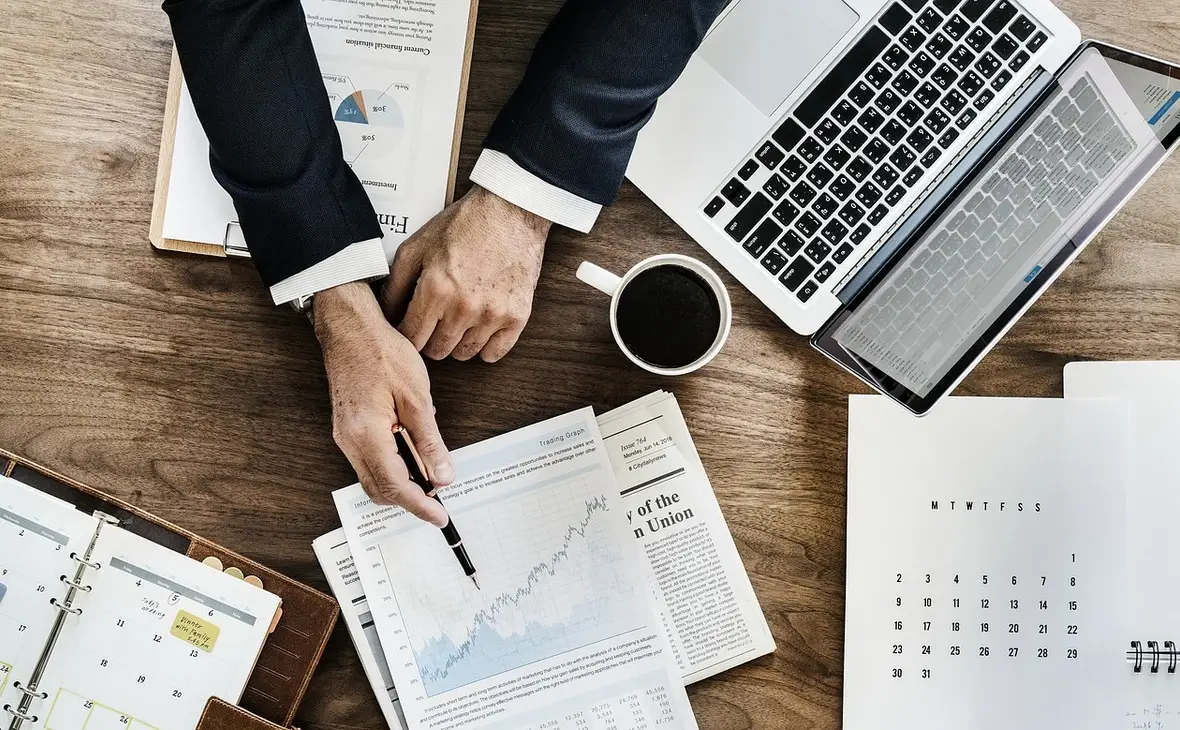Financial reality is changing: inflation is rising, savings are depreciating, and passive income without knowledge is a myth. That is why it is important to understand why it is worth learning trading. It’s not just about transactions—it’s about a skill that helps preserve and grow capital. In the article, arguments are presented on why education becomes a necessity, not a choice.
Why Learn Trading?
Because assets do not obey intuition, but logic, statistics, and systematic thinking. In conditions where inflation in Russia reached 7.8% in 2024, and the interest rate on bank deposits fluctuates around 10%, preserving capital requires tools, not expectations. Learning from scratch helps to develop your own strategy, without depending on media forecasts and analysts.

According to the Moscow Exchange, 70% of private investors lose money due to lack of a plan. Methodical training in stock trading not only forms a strategy but also critical thinking: entering a trade transforms from a lottery into a mathematically justified decision.
Earnings in Motion: Replace Savings with Turnover
Why learn trading? Because savings in an account do not generate profits. With 8% inflation and 12% annual price growth, money loses value. Storing without turnover devalues investments faster than they grow.
Financial independence in trading is achieved not passively, but through understanding the mechanisms of capital movement. Stocks, currencies, commodities—all these are tools available to those who know how to manage them.
Portfolio for Retirement, Not Dust on a Shelf
Investments for retirement are not limited to insurance and long-term programs. Why learn trading? Because understanding market cycles, risk distribution, and asset management strategy allows for forming a flexible portfolio adapted to a specific goal—whether it’s retirement, a major purchase, or long-term savings.
In the US, the 401(k) plan allows citizens to independently allocate funds among stocks, bonds, and funds. Russia does not yet have a similar model. A private investor with knowledge can create their own diversified portfolio using ETFs, OFZs, and blue chips.
Not Real Estate, but Liquidity
Real estate has traditionally been considered a “warm” asset but requires large investments, and the returns do not always justify expectations. The average rental yield in Moscow is 5–6% per annum, with very low liquidity. Why learn trading? Because financial instruments allow increasing profitability with lower costs.
Trading on the exchange provides access to highly liquid instruments with the ability to exit a position in minutes. This allows for prompt response to events and real-time risk management.
One Screen—Hundreds of Assets
One terminal allows tracking dozens of markets. Why learn trading? Because one platform combines capital management, chart analysis, trade execution, and strategy testing. There is no need to turn to a bank or consulting agency—everything is accessible independently.
What opportunities does exchange trading offer:
- daily monitoring and reaction to economic events;
- use of leverage without excessive risk;
- flexibility in choosing instruments: from S&P 500 stocks to wheat;
- customizing a trading plan to fit personal lifestyle rhythm;
- generating income without being tied to a place of residence.
Financial Freedom Starts with Calculation
Financial freedom through investments and trading is achieved not by abstract dreams but by concrete actions. Why learn exchange trading? Because calculation turns a chaotic market into a manageable space.
With a deposit of 1 million rubles and an average monthly return of 4%, an active trader earns 40,000 rubles per month. At the same time, the main capital is preserved, whereas with simple consumption of savings, they disappear within 2–3 years.
Passive Income Requires Effort
The myth of easy money in exchange trading undermines discipline. Why learn trading on the exchange? Because only a deep understanding of processes allows creating passive income from trading without panic or losses.
Developing your own strategy, testing, adapting to current conditions—all of this requires time investment but enables achieving a stable income. Passive income does not come out of thin air; it is built on active and thoughtful decisions.
Investments That Do Not Burn Out
Why learn trading? Because knowledge and time are the only resources that cannot be replenished with money. They either bring dividends or are lost forever. Studying markets, mastering analytics, testing strategies—all build the foundation that over time transforms into confident decision-making.
Knowledge in trading works like a compass. Without it, the road leads nowhere. With it, navigation is possible in any market storm. After a year and a half of independent trading from scratch, an average trader begins to show positive statistics with regular practice and analysis.
Risks Without Hysterics
Exchange trading does not eliminate risk but allows controlling it. Why learn trading? Because education replaces emotions with algorithms. For example, a fixed percentage of the deposit per trade, stop-losses, diversification—these are control tools, not randomness.
Without preparation, the market turns into a casino. With education, it becomes a chessboard. Discipline and methodology reduce risks and eliminate panic. Losses are part of the process, but it is control that helps maintain profitability within the strategy.
Not Magic Numbers, but Portfolio Logic
A portfolio is not a bag of stocks but a system. Why learn trading? Because skillful asset allocation among sectors, currencies, and time intervals protects against market fluctuations.
For example, in a 10% stock index drop, bonds and commodity assets compensate for the decline. One asset falls, the other rises. Such an effect is achieved only through understanding the interaction of instruments, not by simply copying others’ decisions.
Why Learn Trading
In the face of global crises and instability in external markets, there is no alternative to independent investment management. Annual inflation erodes the value of savings, and banking instruments cannot keep up with price growth.
Passive income without active participation in strategy formation is an illusion. Only possessing basic and advanced skills enables protecting, growing, and adapting financial flows to any economic situation.
Invest in Competence, Not in Luck
Why learn trading? Because the market does not forgive random decisions. Competence in exchange trading is an asset that does not lose value with devaluation, is not dependent on local legislation, and is not tied to a specific currency.

According to Bank of America, private investors who have undergone training demonstrate stable profitability 2.3 times more than intuitive players. The difference between “guessed” and “calculated” lies not in inspiration but in education.
Why Learn Trading: Conclusions
Why learn trading? Because the future is not just about goals but also a plan to achieve them. Timely education forms a habit of thinking in terms of probabilities, analyzing consequences, and taking responsibility for capital management. Exchange trading turns the economy from an abstraction into a set of concrete actions. Analytical skill, strategy, discipline—and capital starts working for its owner, not dissolving in inflationary waves.
 en
en  ru
ru  de
de  ar
ar  es
es  hi
hi  fr
fr  nl
nl  it
it  pt
pt  el
el 









